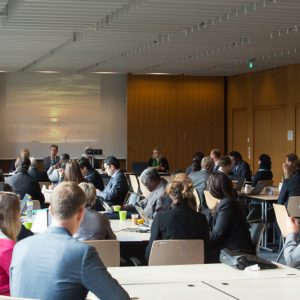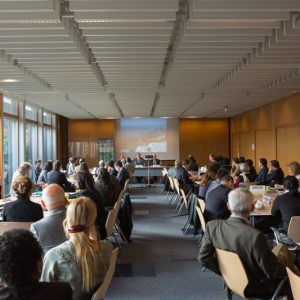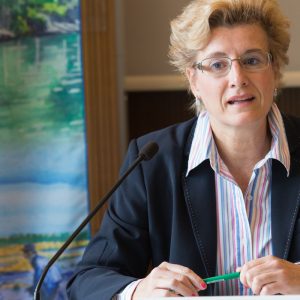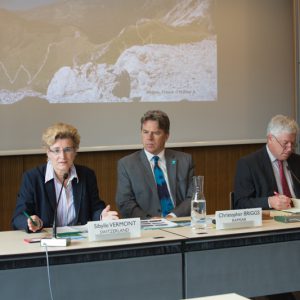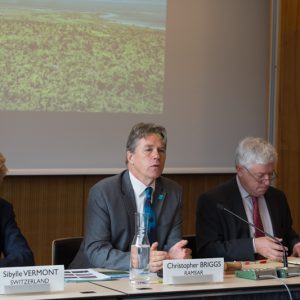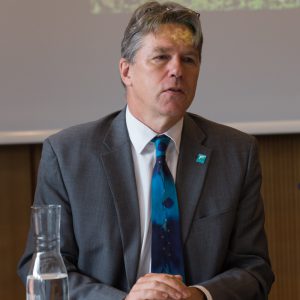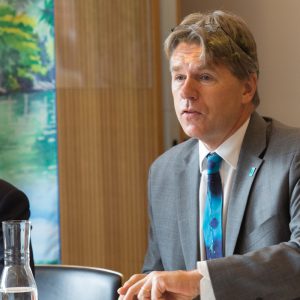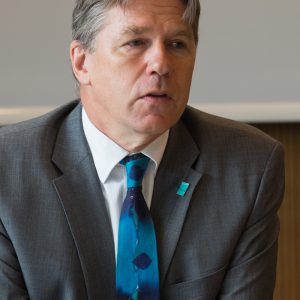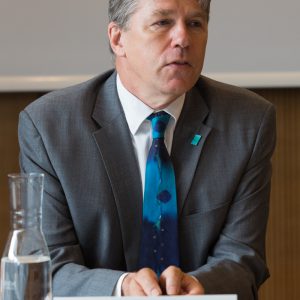Event
Welcome to Christopher Briggs | Secretary General of the Convention on Wetlands
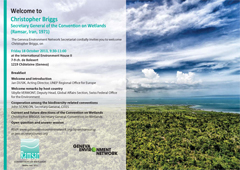
18 Oct 2013
09:30–11:00
Venue: International Environment House II (7-9 ch. de Balexert)
Organization: Geneva Environment Network
About 90 members of the environmental community in Geneva, including representatives of Permanent Missions to the UN, international organizations and NGOs met on 18 October to welcome Christopher Briggs as new Secretary General of the Convention on Wetlands at an event convened by the Geneva Environment Network Secretariat.
Summary
Participants in the event described the crucial role wetlands play in water management and supply, biodiversity and in the protection against natural disasters, and climate change, but also the food, transport and pleasures we all gain from wetlands.
Mark Halle, Executive Director of IISD-Europe, opened the session by highlighting that wetlands have great political and economical importance and value as well as great biological value. He underlined the potential of the mandate of the Convention on Wetlands in protecting all these assets and the potential for an increased role for the Convention, given the increased importance of water in the sustainable development debate.
Sibylle Vermont, Deputy Head of Global Affairs at the Swiss Federal Office for the Environment, expressed Switzerland’s support to the global water agenda, and warned that any sustainable development goals on water must not be limited to people’s rights to water and sanitation, but also include the ecosystems that deliver our water and manage our water system – namely our Wetlands.
Christopher Briggs highlighted the diversity of wetlands and the role they play in our everyday lives as they provide a wide range of services including our food, transport and enjoyment. Wetlands provide and manage the water we rely on to survive every day, but they also clean up dirty water and give us resilience against external shocks to all other ecosystems. Introducing the future directions of the Convention, Dr Briggs mentioned more direct and closer collaboration with new and old partners including the private sector, funders, environmental conventions and UN organizations, and increased direct communications and outreach to ensure worldwide ownership of the issues to find champions to maintain wetlands and widen efforts to save this shared resource.
Agenda
Breakfast
Welcome and introduction
Mark HALLE, Executive Director, IISD-Europe
Welcome remarks by host country
Sibylle VERMONT, Deputy Head, Global A ffairs Section, Swiss Federal O ffice for Environment
Current and future directions of the Convention on Wetlands
Christopher BRIGGS, Secretary General, Convention on Wetlands
Open question and answer session
Discussion
Following questions and remarks by DRC, Philippines, Switzerland, Tanzania, Uruguay, the UN-REDD Secretariat, IUCN and a consultant, the speakers provided additional information on: the wide use of wetlands and links with other biodiversity-related conventions and programmes, also links with the seas Convention, UNCCD and the forest actors; the link between climate change and wetlands; the importance of communication and joint actions.
More information and documents
- The biography of Christohper Briggs is available online on the Ramsar Website.
- Invitation
- Current and future directions for the Convention on Wetlands (Ramsar, Iran, 1971)










